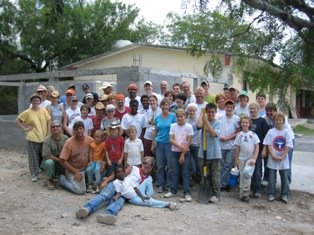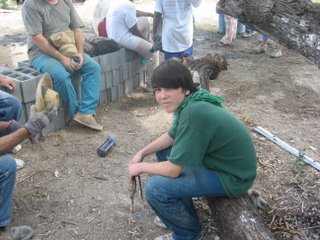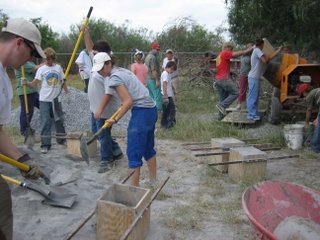
Near the end of
The Godfather, Michael (played by Al Pacino) recites baptismal vows as he becomes “Godfather” to his niece. While he mouths words of peace inside the church, his enemies die violent deaths outside the church. Thus, as Michael promises to “renounce Satan and all his works,” his henchmen mow down Moe and Don in acts of family vengeance.
I don’t know if
The Godfather was first, but this cinematic device has certainly been repeated since. Was it
Schindler’s List or another film that showed a sniper taking shots while reciting Psalm 23? The point made is that the lofty hopes of Scripture do not translate so neatly into the real world. (Incidentally, that’s the overall point of
The Godfather; Michael intends to keep out of the “family business,” but cannot. His father, famously portrayed by Marlon Brando, gives a dying speech to Michael to express his regret over this; yet Michael ultimately accepts and even embraces that he must follow in his father’s footsteps.)
I thought about these cinematic juxtapositions of Scripture and violence today as I read Psalm 23. While reading this famous psalm of comfort, cable news detailed the large terrorist plot that was reported today. This is the most violence that has been discussed on television since, well, yesterday.
So the question is, do the lofty ambitions of Psalm 23 fit into our violent world?
A psalm of David.
The LORD is my shepherd, I shall not be in want.
He makes me lie down in green pastures, he leads me beside quiet waters,
he restores my soul. He guides me in paths of righteousness for his name's sake.
Even though I walk through the valley of the shadow of death, I will fear no evil, for you are with me; your rod and your staff, they comfort me.
You prepare a table before me in the presence of my enemies. You anoint my head with oil; my cup overflows.
Surely goodness and love will follow me all the days of my life, and I will dwell in the house of the LORD forever.If Psalm 23 were merely wishful thinking or sentimentalism, the answer would have to be “no.” But here are some clues that it is not:
“He restores my soul.” … “Even though I walk through the valley of the shadow of death…” This psalm is concerned with stilling the conflict within us, not every conflict that rages outside us.
“He guides me in paths of righteousness…” This psalm is about learning righteousness, not obtaining consumerist comforts.
“…for his name’s sake.” The promises here are driven by God’s jealousy over his glory, not his desire to glorify us. (Although we sure do benefit, don’t we?)
“...in the presence of my enemies.” Enemies? This is sounding less sentimental all the time!
I could go on. The point is that this psalm deserves a second look. Don’t get me wrong, it is indeed comforting! It is comforting enough to work in a violent world just as much as in a peaceful one, for it moves us not toward retirement but to eternity. We might say that it is a psalm about God’s fathering rather than God’s mothering…though we often assume the reverse.
In
The Godfather, Michael executes vengeance on his enemies. In Psalm 23, God the Father leads us in paths of righteousness and ultimately prepares a table for us in the presence of our enemies. Can we find in this psalm what we need to find peace in a violent world? Have we tried?














